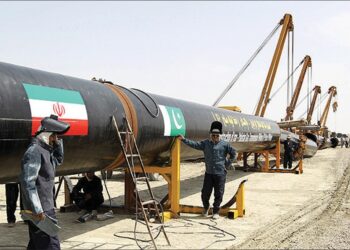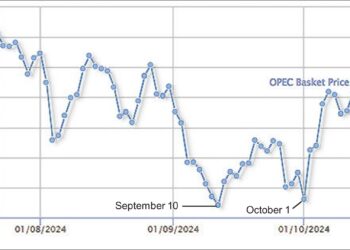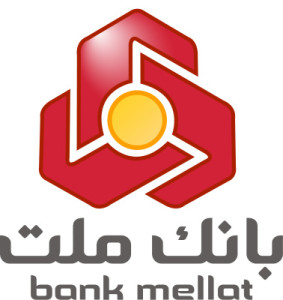January 24-2014
Foreign delegations are pouring into Iran and the Islamic Republic is touting the visits as proof of the success of the Rohani’s Administration initiative to bring Iran back into the global mainstream.
The visits fall into two categories—parliamentary delegations and businessmen.
The business visits are being portrayed both in Iran and around the world as the end of sanctions. But sanctions haven’t ended and contracts aren’t being signed. Most of the business visits appear to be fishing trips to see what business opportunities might develop in Iran once sanctions are lifted.
Furthermore, the United States is very concerned about businesses not understanding that most sanctions remain in place. A senior US official was dispatched to Europe last week to make the point that businesses had best be careful what they do if they don’t want to run afoul of US sanctions. His main visit was to Rome where the Italian media has been bubbling with glee over new prospects in Iran.
He told the media Iran is still a “perilous” place for foreign companies. He said firms must be alert not to “over-interpret” the scope of the change in sanctions.
“Businesses need to take into account the legal and the reputation risk of doing business with Iran,” he told Agence France Presse on condition of anonymity.
The Christian Science Monitor even carried a story saying, “Don’t believe the hype” about the Iranian market suddenly opening wide.
The one possible exception to the dismal prospects may be auto firms, especially the French firms that once sold a huge volume of auto kits to Iran, business that came to an end with the tougher sanctions in 2012. The sanctions on auto sales were lifted by the EU Monday. But business analysts point out that US banking restrictions remain in place and are likely to stymie any business for now. Most European auto sales stopped early in 2012 because of the banking restrictions and before the actual ban on auto sales was imposed in the summer of 2012.
One auto executive told Reuters, “We still have a blockage on financial flows. So nobody is motivated to send parts and to produce there because you are not going to be paid.”
Among the major European firms visiting Iran is Alstom, one of the biggest names in technology for the power industry. But a spokeswoman said the visit wasn’t to sign contracts but “to test the environment in the country.” Alstom, like almost all large European firms, does substantial business with the United States and will not want to put that business at risk for what would be comparatively small business to be had in Iran.
Alstom will be part of a French business association trip to Iran February 2-5.
There is considerable misunderstanding among the media and general public about the lifting of sanctions. Many stories being written do not understand the very limited nature of the changes in sanctions.
For example, the South Korean newspaper Chosun Ilbo noted that sanctions are being lifted on petrochemicals and said South Korea’s “petrochemical industry is seeking more imports of oil from Iran.” But the sanctions now lifted from petrochemicals are those previously imposed on Iran’s petrochemical industry, allowing it to resume sales.
Restrictions on Iranian crude oil sales remain, so South Korea cannot buy any more Iranian crude for its petrochemical industry or anyone else unless its wants to risk being shut out of the US financial industry.
Considerable attention was given last week to the news that the Belgian chemical firm Tessenderlo is about to ship 60,000 tons of fertilizer to Iran, a sale that many attributed to the lifting of sanctions.
But sanctions have not been imposed before on fertilizer, which enjoys the exemption for agricultural products. Furthermore, Tessenderlo won the contract months ago, before there was any agreement on sanctions relief.
It is likely that many smaller firms in Europe that once did major business in Iran will try to resume sales. But when they go to their banks and are told the banks are still not conducting any transactions with Iran, those prospects will likely dissolve.
There are several sanctions that are being modified. For example, after a third of a century, the United States will no longer block the sale to Iran of spare parts for civilian aircraft. Iran’s airlines are eager to buy. They have been able to buy everything they have needed on the black market, but they have had to pay through the nose. Now they can buy upfront and directly from Boeing. But this is small business—and Iran will actually be spending less on aircraft parts since it won’t be exploited any longer.
There are potentially only two big changes in sanctions money-wise—the one that allows Iran to buy autos and auto parts and the other that allows Iran to sell petrochemicals. But both still have to tackle the banking restrictions. Furthermore, the temporary agreement is only guaranteed to last six months, and firms may not be interested in investing in a sales structure for such a short period.
The market certainly bears close watching in the coming months, but most market analysts are not anticipating any major changes in business with Iran, either sales to or purchases from.
Parliamentary delegations are also flooding into Iran. But these delegations don’t make policy. They visit to learn about issues—and also to shop and tour. Furthermore, as Iran discovered with last month’s EU parliamentary delegation, many of these parliamentarians feel strongly about human rights and don’t mind embarrassing Iran on that topic.
The visits also risk other tripwires for Iran. It turns out that Jack Straw, a former British foreign minister who led a UK parliamentary group to Iran this month and is very friendly to the Islamic Republic and opposed to sanctions, was prevented from meeting with former President Mohammad Khatami as he wished.
Upcoming visits include the Italian cultural minister and parliamentary delegations from Kenya, Azerbaijan, Mexico, South Korea, Germany, Ireland and Romania. These are in addition to the visits listed previously in the Iran Times.


















